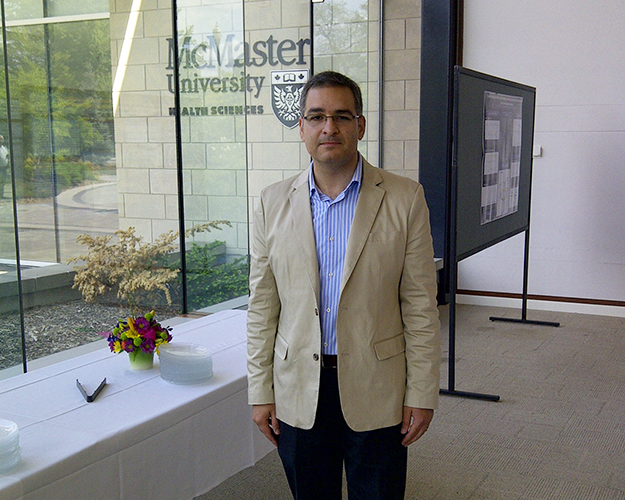Research shows tailored treatment needed for children with autism spectrum disorder

Stelios Georgiades is an assistant professor of psychiatry and behavioural neurosciences at the Michael G. DeGroote School of Medicine, a co-author on the paper and a researcher with the Offord Centre for Child Studies, where much of the study was conducted.
Researchers from McMaster’s Offord Centre for Child Studies have found that preschool children with autism spectrum disorder (ASD) differed from each other in symptom severity and adaptive functioning at the time of diagnosis and some of these differences appeared to increase by the age of six.
The study, published Wednesday in the Journal of the American Medical Association (JAMA) Psychiatry, was led by Peter Szatmari of the Centre for Addiction and Mental Health and his co-authors including the Offord researchers.
The study describes the developmental trajectories of autistic symptom severity and adaptive functioning in a group of 421 newly diagnosed preschool children with ASD who were participating in a large Canadian study. Data collected at four points from diagnosis to age 6 were used to track the developmental trajectories of the children.
Study results showed two distinct trajectory groups for autistic symptom severity: the first group of 11.4 per cent of the children had less severe symptoms and an improving trajectory; while the second group of 88.6 per cent of the children had more severe symptoms and a stable trajectory.
For adaptive functioning, the children fell into three distinct trajectories: Group 1 (29 per cent of the children) had lower functioning and a worsening trajectory; Group 2 (50 per cent of the children) had moderate functioning and a stable trajectory and Group 3 (21 per cent of the children) had higher functioning and an improving trajectory.
Stelios Georgiades is an assistant professor of psychiatry and behavioural neurosciences at the Michael G. DeGroote School of Medicine, a co-author on the paper and a researcher with the Offord Centre for Child Studies, where much of the study was conducted.
He said ASD is multifaceted and the developmental course of autistic symptoms of what a child can’t do that is not always directly linked with the developmental course of adaptive functioning of what a child can do. During the preschool years, there is notable variability in the developmental trajectories of children with ASD, and so treatment plans are needed that target both symptoms and functioning skills, and are tailored to each child’s strengths and difficulties.
This study was supported by the Canadian Institutes of Health Research, NeuroDevNet, Autism Speaks, the Government of British Columbia, the Alberta Innovates Health Solutions, and the Sinneave Family Foundation.

